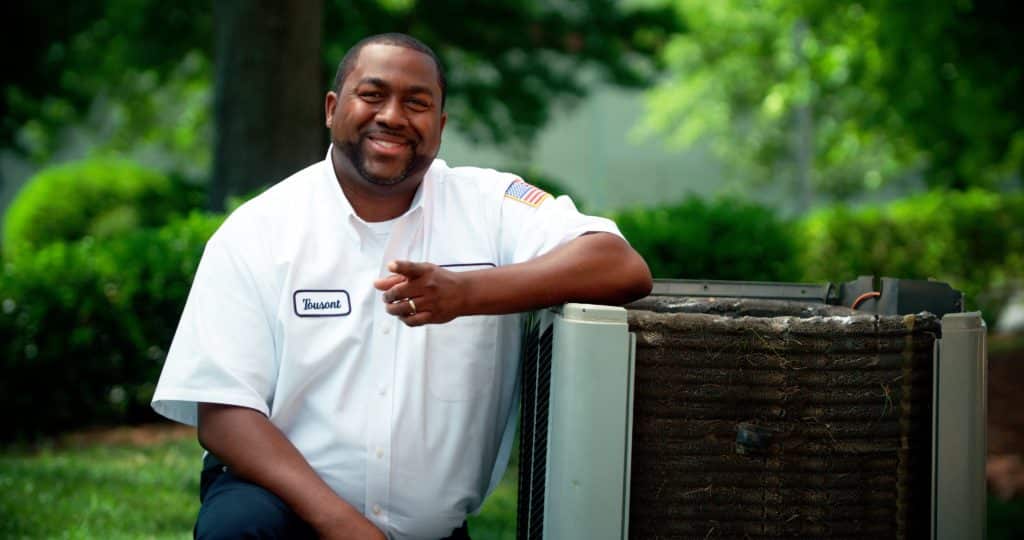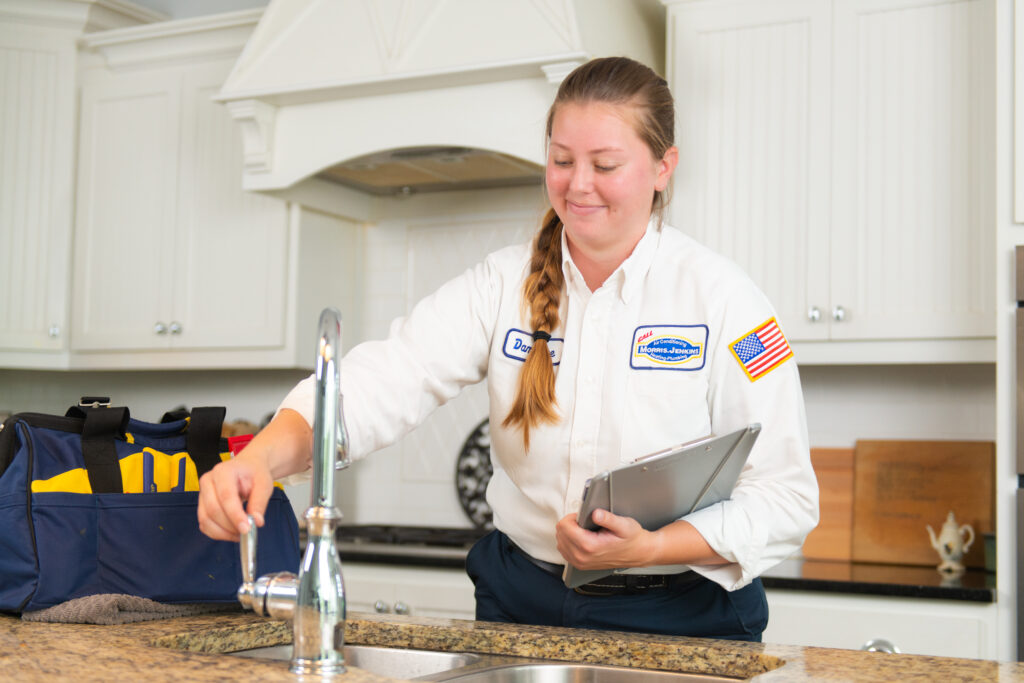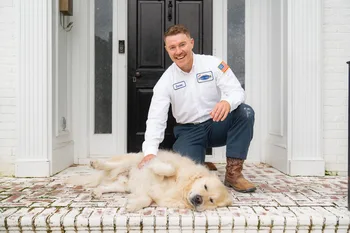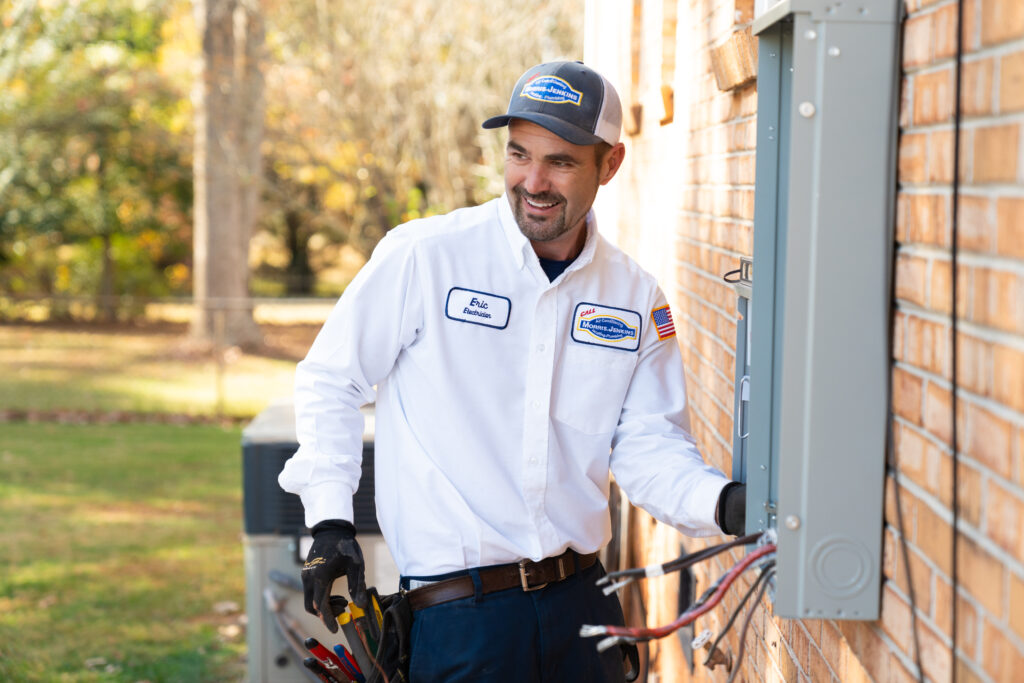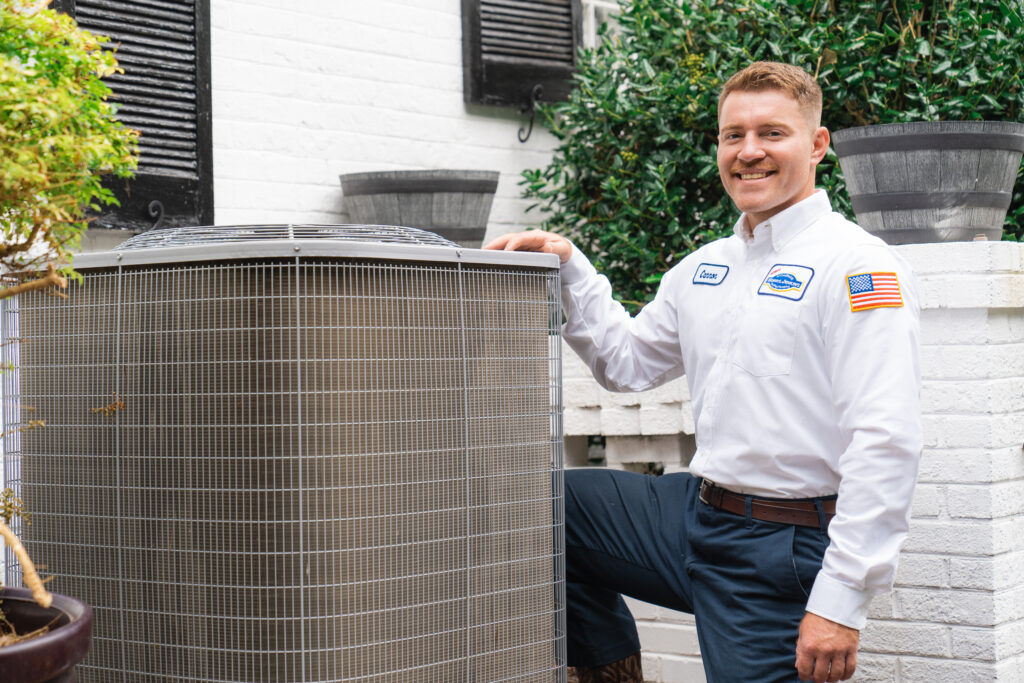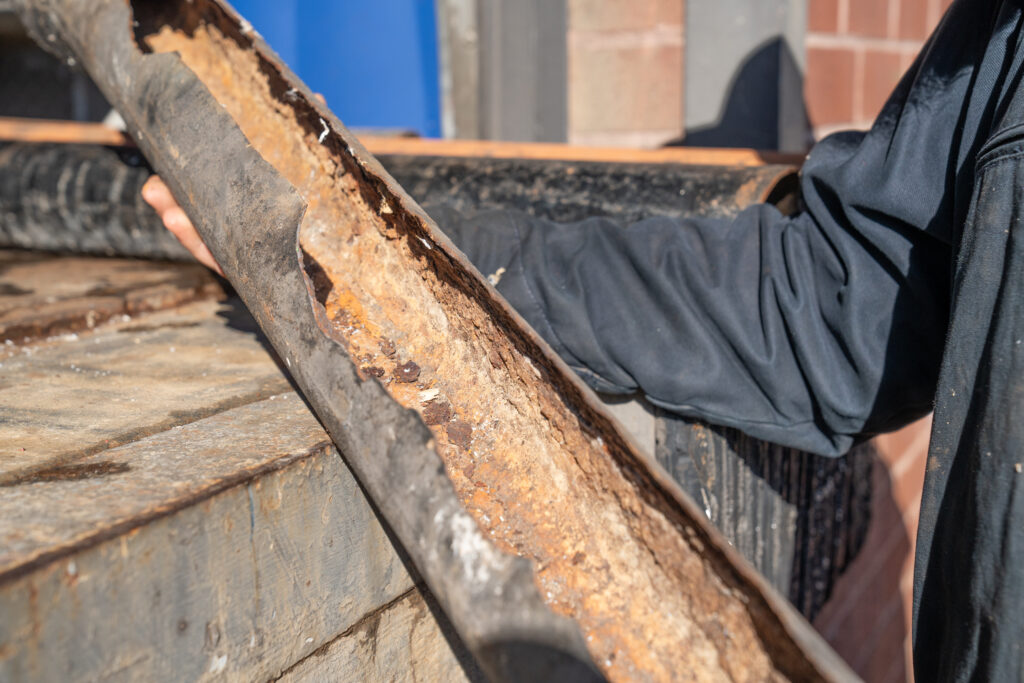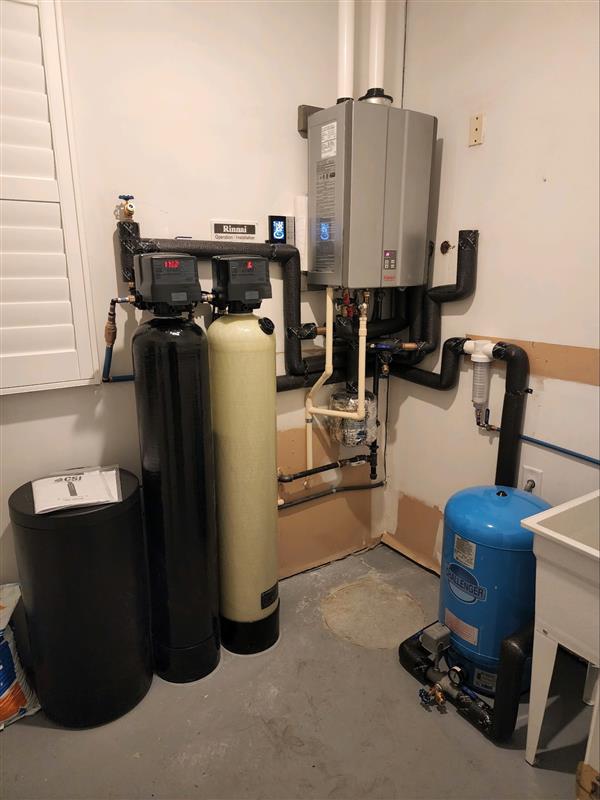When you wanna keep your home comfortable all year long, you want the biggest heating and cooling unit possible, right?
Not exactly!
Just like Goldilocks when she made herself at home in the bears’ house, there’s such a thing as too big and too small when it comes to your HVAC unit. When your heating and cooling system isn’t the right size for your house, it can cause a bunch of problems. So… how do you know what’s a good size AC for your home? What happens if it isn’t quite right?
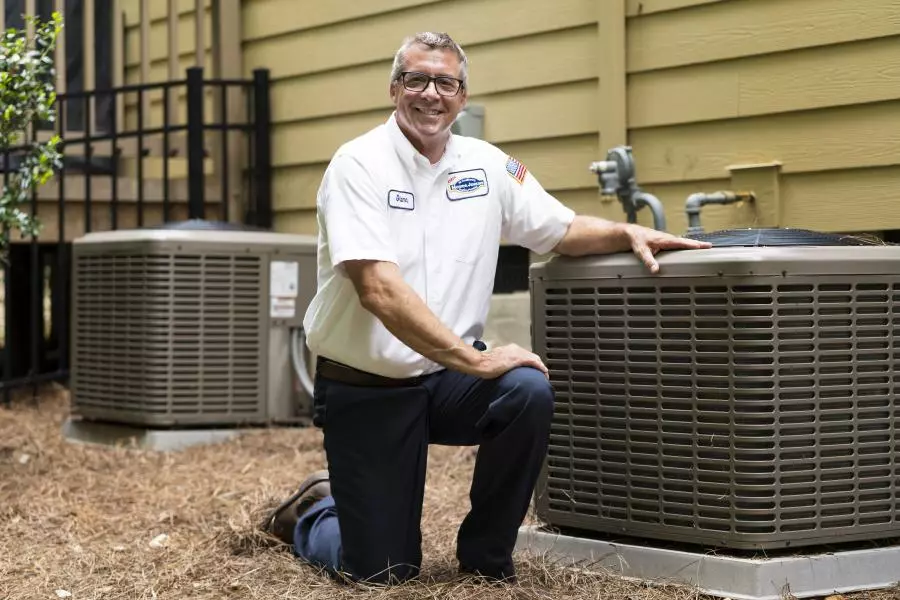
Heat Load Calculation
For a long time, contractors have used a memorized equation to figure out what size AC a home needs. 600 square feet of living space needs 1 ton of AC. So, for example, an 1800 square foot house would typically require a 3-ton AC. One thing a lot of contractors don’t realize is how many factors can throw off that old equation! It isn’t just about the size of your home, but your AC installer needs to figure out:
- How much insulation your home has
- The number of people living in your home
- How air-tight and sealed up your home is
- How many windows you have and whether they’re single or double pane
- The amount of sun vs shade your home gets
- How tall your ceilings are
With all these other details at play, how are you ever supposed to know what size air conditioner your family needs? This is where the miracle of modern technology comes into play! Morris-Jenkins actually relies on some pretty neat computer software to calculate the size air conditioner and furnace (or heat pump) you need based on all the details of your home.
Once we plug in all the information, the software tells us exactly how many British Thermal Units (BTUs) are required to heat and cool your home. Wondering what a BTU is? It’s a measurement of the amount of energy it takes to heat one pound of water by one degree.
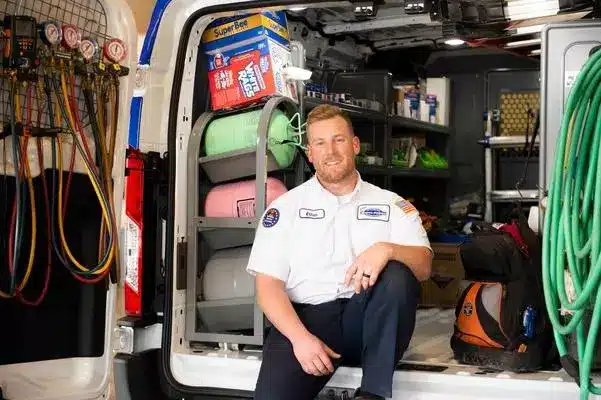
The Right Way
A lot of contractors still rely on the old equation to pick out a unit size for your family. They aren’t doing proper load calculations, pulling permits, or having the job inspected. These contractors are some of the cheapest options for replacing your HVAC unit, but the price you pay is in comfort and safety (not to mention your utility bills if the unit isn’t the right size! But more on that later.).
Related article: “Why It’s Important to Get a Second Opinion”
The Four Jobs of Your Air Conditioner
When you think of your AC, you probably think it’s there to cool your home. You’re right—partially! Your air conditioner actually has four jobs that make it such an important part of your home:
1. Temperature control
2. Humidity control
3. Control air circulation and ventilation
4. Clean the air
Willis Carrier invented air conditioning. He was asked to figure out how to dehumidify a printing room because the ink wasn’t sticking to the paper. His invention led us to the modern AC, which still relies on dehumidifying in order to keep things cool!
What Happens If Your Unit is Too Big?
When a contractor doesn’t properly calculate and installs a unit that’s too big, you’re gonna have some problems. It’s natural to think a bigger unit will cool your home faster, and while that’s partially true, it comes with issues of its own.
Remember we just talked about how your air conditioner is meant to act as a dehumidifier? In North and South Carolina, we have a LOT of humidity! If you wanna feel comfortable in your home during the summer in the Carolinas, your unit needs to properly manage your home’s humidity levels. Not only does this keep your family comfortable, but it even protects the structure of your home and your belongings. Too much humidity can lead to mold, odors, and that horrible sticky feeling all summer long!
A properly sized HVAC system will run just long enough to keep your home at the temperature you set. It also keeps your unit running long enough to remove enough moisture from the air. If your unit is too big, it may seem to cool faster, but because it’s running in shorter, frequent bursts, it won’t be able to remove enough moisture! Not only that, but because of the short bursts, air won’t get circulated as much in your home, and won’t be passed through your air filters. This leaves you with poorly filtered air!
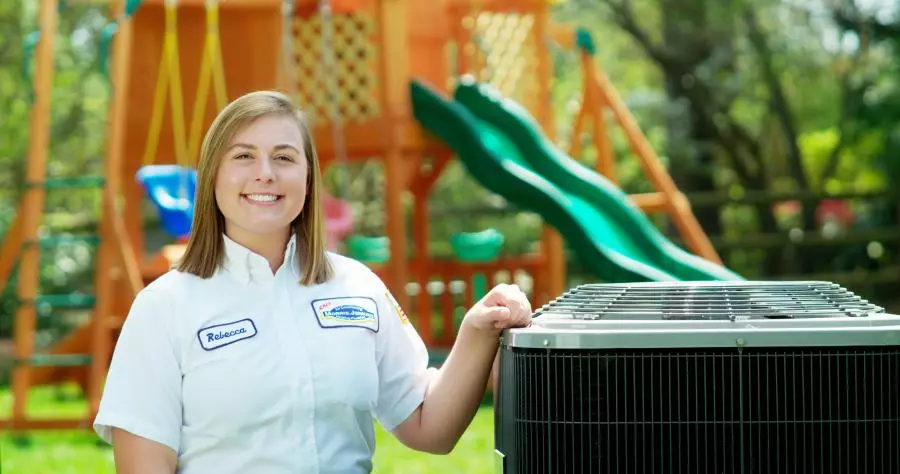
Mechanical Issues
Because an oversized unit cools your home faster, it starts and stops a lot. This frequent starting and stopping causes unnecessary wear and tear on your motor, shortening its life. This means you’ll end up spending more money in the long run trying to keep up with repairs! Not only that, but the system itself won’t last as long.
These issues don’t only apply to the cooling season either. Heating season is just as bad, if not worse for your oversized unit! Oversized furnaces will also run shorter cycles, which can lead to the system overheating. This is a safety concern, and it can drastically shorten the life of some of the major parts of your furnace!

If your unit is too big, it may seem to cool faster, but because it’s running in shorter, frequent bursts, it won’t be able to remove enough moisture!
What Happens if Your Unit is Too Small?
Now that you know the problems with a system that’s too big, you might be wondering what happens if your unit is too small. If a contractor doesn’t size your system correctly and installs too small of a AC or furnace, it can raise your electric bills because it may run nonstop just trying to keep up with your heating and cooling needs. If you’ve got a heat pump, your undersized unit will have to run the heat strips more to keep your home warm, and that will drive up your energy usage. Despite the higher bills, the obvious problem with an undersized system is the discomfort! Your home won’t get as warm or as cool as you’d like simply because your unit won’t be able to keep up. If it can’t make your home comfortable, it doesn’t really have a purpose!
It’s Not Just About the Size
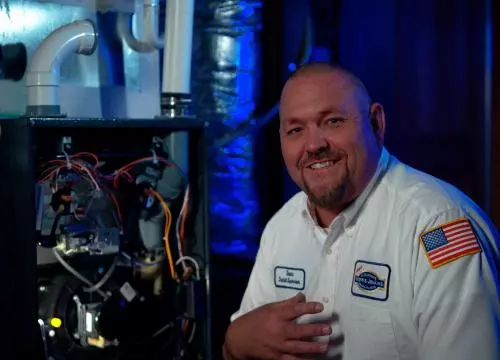
Every installation has to be permitted and inspected. Unfortunately, a LOT of companies don’t take the steps they need to get this done. Remember when we mentioned heat load calculation? Your installer should submit that in order to get the actual permit for the installation. Not only that, but once your new equipment is installed, they need to schedule a 3rd party to inspect it to make sure everything is safe for your family.
Not only is it a matter of safety, but if you hire an install company that doesn’t pull the proper permits, you could even have trouble selling your home one day! Don’t settle for companies that cut corners. When you call Morris-Jenkins, we make sure everything is done the RIGHT way, even if it’s not the easy way.
One Size Doesn’t Fit All
Even if you think a bigger AC would be a good idea because it’ll cool your house faster, the negatives far outweigh the positive. As for a smaller/undersized unit, there are no benefits! Systems that are too big or too small will just cause you more problems in the future.
When you’re ready to replace your heating and cooling system, Morris-Jenkins has a team of talented and friendly installers who always do things the right way, not the easy way! They use the proper software to calculate which unit to install for your home—one that’s not too big, not too small, but just right!
